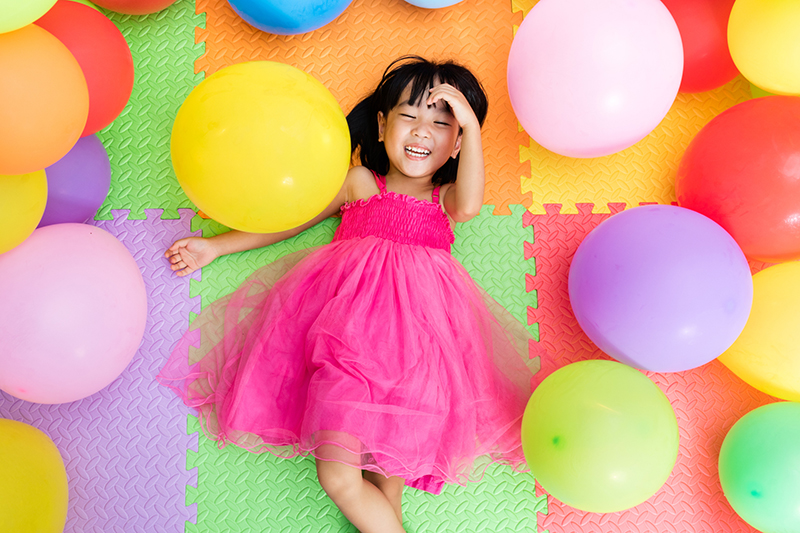Families For Life | Parties and Social Events: Children and Teenagers with Autism Spectrum Disorder

Socialising and going to parties helps children with autism spectrum disorder (ASD) practise communication and social skills. But the social world can be complicated and confusing for a child with ASD. Planning ahead and helping your child build social skills can help.
Why parties can be hard for children with autism spectrum disorder
Children’s parties and social gatherings can be a great chance for children to practise and develop their social skills in a supportive environment. But children with autism spectrum disorder (ASD) can find parties and social gatherings difficult.
Parties mean playing games, taking turns, listening to instructions – and just being with other people. All of this can be hard for children with ASD, who often have trouble with communication and social interaction.
On top of this, many party games and activities need skills that are hard for children with ASD to master, like organising, waiting or working out what comes next.
And some children with ASD are easily overwhelmed by their surroundings. They might find it hard to cope with the noise of other children laughing and shouting, loud music or people singing ‘Happy birthday’ all together.
'Party games are too much for my son. We have parties in the park, so the children can all run around and have fun.'
– Parent of a child with ASD
Planning for social events with your child with autism spectrum disorder
For a start, there’s no pressure to take your child with ASD to a social event. Just do what feels manageable for you. But if you and your child do want to go, some planning can help you feel more confident and your child feel better prepared.
A Social Story™ about the party could be a good first step. You might focus the story on something specific like how to take turns, or how to behave when someone else wins a game. You could also ask the party hosts what they’re planning, and use a visual schedule to show your child what’s going to happen when.
Role-plays are another good way to prepare your child for a party. For example, you and your child could role-play some of the things that will happen at the party – for example, arriving, saying hello or taking turns.
Video-modelling can also help. You can buy ready-made videos to help your child learn social skills, like how to behave appropriately at a birthday party. Making your own videos is also an option.
Planning to go to the party only for the parts your child can manage can be a good idea. You might also plan for you and your partner, or another trusted adult, to take turns supervising your child. An ‘escape plan’ if your child feels overwhelmed might help too. For example, plan to take your child out for a walk or to sit in a quiet room.
A ‘survival kit’ with your child’s favourite toys, books or snacks might calm things down if needed.
Building skills to help your child with autism spectrum disorder manage social events
As a longer-term strategy, you can help your child with ASD build skills for taking turns, sharing, joining in and calming down. These skills are good for parties and other social events, but they’re also very useful in the playground and classroom or when your child is with friends.
For example, you might know that your child gets upset when he loses a game. So, you could work on losing gracefully. You could build up skills in this area by:
using a Social Story™ that shows that it’s OK to lose
practising losing at games of chance like ‘snap’ or ‘snakes and ladders’
teaching your child to say, ‘Well done, you win’
using a reward of 10 minutes of a favourite activity each time your child uses his script and loses gracefully. You might need to provide the reward at birthday parties to start with.
Our articles on learning to play fair and learning to share have ideas for helping children develop these skills.
Hosting a party for a child with autism spectrum disorder: tips from parents
Planning is the key to holding a successful party for your child with ASD. Other parents have found these ideas helpful:
Plan for a short party with a clear structure.
Give the party a theme based on your child’s special interests.
Hold the party in a familiar and contained environment like your house or your nearby play centre.
Keep unstructured playtime to a minimum.
Leave out things that you know could distress your child. For example, you might serve the cake without singing ‘Happy birthday’ if your child is sensitive to noise.
Always have an adult near your child who can help her out if she gets confused or upset. Make sure all the adults know what they can do to help your child cope.
© raisingchildren.net.au, translated and adapted with permission
Explore more